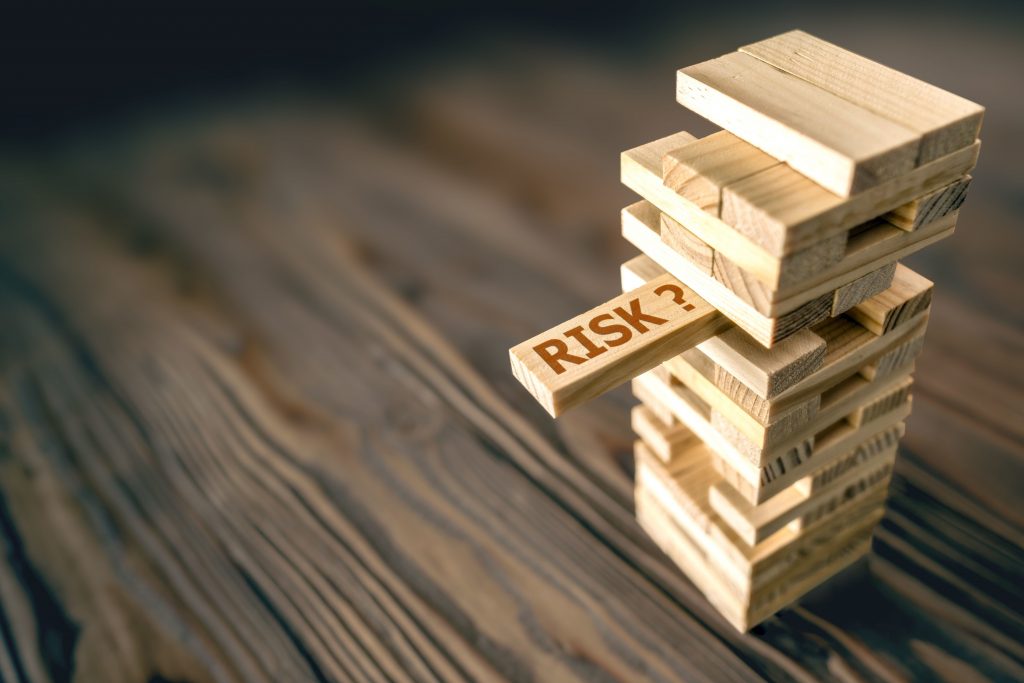Do me a favour: Roll the clock backwards a few years.
Come on, a few more.
If you make a conscious effort to travel back into the inexperienced and naive mind inside your old self at that time, you will quickly notice that you have always been looking for safety.
In the early years, the feeling of emotional safety was ruling your world. You constantly looked for your parents’ love and affection. You wanted to feel that you had their approval and support.
Soon after, the need for emotional safety extended to your social circle. You wanted to feel accepted by your friends at school. You wanted to feel like you belonged to the group and your opinions were valued. You wanted to feel that you somehow mattered in whatever was going on around you.
A few years later, the feeling of material safety sneaked with a quiet and subtle voice into your life. You started to care about your professional life. What type of job you should get. If it was stable. If it paid well. If it had social status. If you would be able to do it better than others, or at least not worse. If you would be able to build a “career” (whatever the hell that thing is) out of it.
And somewhere in the middle of this mental mess, you started to care more and more about money.
The belief that money is the element that drives everything in life was already embedded in your brain from early age. You heard about it from your family and friends, you saw behavioural examples of it everywhere and you even noticed it in your own skin as time went by. Your personal experience reinforced the belief that money is the element that dictates what kind of life we live: Our neighbourhood, our house, the size of our room, the clothes we wear, our car, our gadgets, what we order at the restaurant, where we go on holiday.
By this point, your soul had already fully absorbed that money is like gasoline in a car: The element that determines how far you can go and how quickly you can get there. Without it, you are like a broken branch at the mercy of the waves, directionless.
What happened next
Adopting these beliefs did not happen overnight, but rather through a constant flow of information and external stimuli. The behaviours and effects you saw around you for many years progressively moulded a materialistic worldview, which underpinned the path to satisfy your need of feeling safe. According to this worldview, you needed to do certain things in order to satisfy the most fundamental emotional need that grew inside you since you were a child. And those things you needed to do, in a nutshell, were the things that everyone else was doing: Study a subject that would give you good chances to find a decent job, find that decent job, build a respectable career around that decent job and live a comfortable middle class life. Follow that linear path with discipline and you will be able to sit back and relax when you hit the goalpost.
You believed that if you did all that, you would get the two pieces of the safety puzzle into your bag.
Firstly, emotional safety. You would get the approval of people around you. You would feel that you belong. And by feeling that you belong, you would feel safe.
And secondly, material safety. You would have built a professional career with enough income coming through to sustain the lifestyle that would make you happy for the rest of your life.
You put all these beliefs into practice and made a number of decisions. After a few years, you arrived at a reasonably comfortable place. And you thought you had found the feeling of safety you were so desperately looking for. So much so, that you got attached to it very quickly. No matter how the world around you was changing, you needed to keep feeling safe because that feeling was the foundation of your whole lifestyle.
You realised that you had to protect the source of that feeling. And the source was no other than everything that you had achieved so far and everything that you still wanted to achieve: All those trophies and medals that projected to the outside world that you deserved recognition and acceptance. Your job, your paycheck, your house, your car, your holidays, your postcode. That was the source. And the only way to protect the source was to make those trophies and medals bigger and bigger over time.
However, no matter how credible and familiar this story might sound, the reality is that this feeling of safety is flawed. Built on thin air. And as soon as things change and your world gets shaken up just a little bit, you will realise how flawed it is.

You have been chasing objectives that do not depend on you but on somebody else’s approval. And that is the opposite of safety, because you do not control that. You do not control that at all. Which, by definition, means that the feeling of safety you have, the very thing you have been pursuing for so long, as if it was the golden passage to your life satisfaction and happiness, is an illusion.
The other way
Do you want some good news? There is another way. It is probably going to sound a bit counterintuitive, but it is a much more effective path to safety than the conventional one.
First, you need to take a good look at the world with eyes wide open. If you do, you will see that it is in constant change and the pace of that change is now faster than ever. Social priorities change, governments and policies change, processes get replaced or eliminated through technological disruption, old skills are no longer needed, brand new skills are in demand, companies get taken over by other companies, people get fired, management teams change, jobs get outsourced to low cost countries or replaced by artificial intelligence. And none of these trends are likely to be going away anytime soon.
Second, you need to ask yourself this: Do I think that I can feel truly safe on a long term basis by doing what everyone else is doing, which is to rely on the outside world staying the same as it is, or at least not changing too much or too fast? Can I feel truly safe if I depend on my job not being affected, on my salary not being reduced, on my middle-class life not getting diluted, on my professional career not losing value, on other people’s opinions about me not changing?
The answer is no. If you chase all that as the source of your safety, chances are that you will end up frustrated and unhappy, because you are focusing on things that you can’t control. And that is not a good bet because the odds are against you. At some point you will realise, maybe in awe, that you are not as safe as you felt you were. And that discovery might hurt depending on how hard it hits your ship.
When you arrive at the conclusion that the outside circumstances are constantly changing and your current strategy to feel safe is not as sound as you thought, you have two options:
- The first one is to act on that conclusion and start addressing the problem.
- The second one is to keep that conclusion in your head as intellectual value, without any practical manifestation in your everyday life.
Most people, unless reality strikes them and wakes them up from their dream, choose the second option. But for obvious reasons, only the first one is useful.
In other words, you need to actually DO something. You need to do something to start building a legitimate feeling of safety. And the only effective way to do that is to increase your resilience to change.
Increasing your resilience to change will strengthen your confidence that you will be able to adapt and cope with anything that life throws at you. And that, my friend, is the only form of safety that you can rely on. The only real safety you are ever going to find.
Assuming you are starting to accept all this, the next question can only be: How do you increase your resilience to change?
Now that’s an interesting question.
There are a number of skills that you can build to increase your resilience to change. Do you want to know the best part? You do not need to rely on the outside world for any of it. You can do it yourself, no matter what environment you are in.

Some of these skills are, in no particular order of importance:
- Your ability to interact with people, communicate and relate to others empathically. Being able to connect and influence people is the key that opens almost every door, no matter what profession you are in.
- The habit of constantly learning about new things that are (or become) useful in the professional fields you are interested in. With the power of the Internet, almost anything you want to learn about is at your disposal at very low cost. And you do not need to be a genius in many things. You just have to be good enough in a combination of two or three that generate synergy and differentiate yourself from others.
- Your ability to react to external events in a more constructive way to keep your inner balance under control and ensure your reactions are adequate and aligned with your main goals. Learn a bit of Stoicism and practice some of its principles.
- Your ability to deal with “failure” and your very definition of it. Trying your best and not succeeding is not failure. Failure is to settle for a mediocre life just because you are afraid of trying something else that resonates better with you. Practice optimism and learn to see life as a source of abundance rather than as a source of scarcity.
- Your ability to spend time and resources consciously. Learn to reduce the allocation of those to people and activities that are not empowering you towards your goals and helping you experience your definition of happiness. And at the same time increase the allocation to those people and activities that do help you make progress in that direction.
- Your personal finance literacy and habits. This is essential to help you maximise your financial freedom in the minimum amount of time and at the same time allow you to avoid your financial needs excessively driving some of your most important life choices. Because life choices, after certain point in your life, shouldn’t be too much about money.
There are others skills you can focus on, but these are the core ones in my opinion. If you spend time and energy building a stronger you in all or most of the above, your resilience to change will significantly expand. You will build a network of valuable relationships that will act as a constant flow of professional opportunities. You will know that if you feel attracted to a different life path, you will be able to learn the skills required to navigate it. You will be able to try new things because you will feel emotionally strong to handle the scenario of not immediately succeeding in them. Your conscious allocation of time and resources will keep you focused on your goals and avoid diluting your results. And your personal finance savviness will provide you with a strong financial cushion that, upon an unforeseen change of circumstances, will grant you valuable optionality to decide what your next move should be.
In essence, you will be highly resilient to change. You will feel that you can deal with anything that comes. You will know you can.
And that will make you feel safe. Truly safe.
Pura vida,
Frank.

